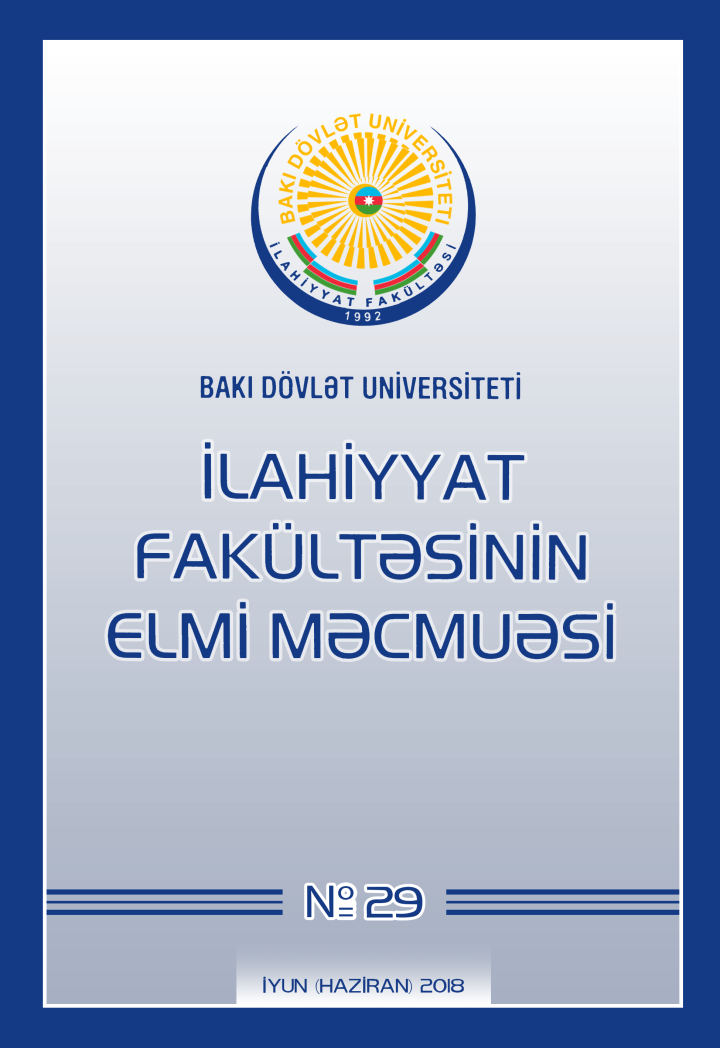“Folklor” konseptinə “Din-folklor” münasibətləri kontekstində baxış
The View to the Consept of “Folklore” in the Context of “Religious Folklore” Relationships
Взгляд на концепт «фольклор» в контексте отношений «религия-фольклор»
Bayat F. Folklor haqqında yazılar (nəzəri məsələlər). Bakı: Elm və təhsil, 2010, 224 s.
Xavəri S., Quliyev H., Qarayev S. Folklorun funksional strukturu: multidissiplinar kontekst. Bakı: Elm və təhsil, 2016, 496 s.
İsmayılov H. Folklor: aksiom və absurd arasında Azərbaycan şifahi xalq ədəbiyyatına dair tədqiqlər, XX kitab. Bakı: Səda, 2006, s.
Qarayev S. Mifin tarixə müdaxiləsi: 21 dekabr 2012-ci il. Bakı: Sabah, 2018, 204 s.
Rzasoy S. Azərbaycan gülüşü etnik özünüifadə kodu kimi Muxtar Kazımoğlunun yaradıcılığında // “Dədə Qorqud” jur., № 2, 2006, s. 155-164.
Rzasoy S. Mifologiya və folklor: nəzəri-metodoloji kontekst. Bakı: Nurlan, 2008, 188 s.
American Folklore Society www.afsnet.org.
Amos D.B. Toward a Definition of Folklore in Context, in Americo Parades and Richard Bauman, eds. Toward New Perspectives in Folklore. Austin: University of Texas Press for the American Folklore Society / American Folklore Society www.afsnet.org.
Botkin B.A. Treasury of American Folklore // American Folklore Society www.afsnet.org.
Brunvand J. The Stady of Amerikan Folklore: An Introduction, 2-nd edition. New York: W.W.Norton, 1978 // American Folklore Society www.afsnet.org.
Ives E.D. Joe Scott, the Woodsman-Songmaker. Urbana: University of Illinois Press, 1978 // American Folklore Society www.afsnet.org.
Endirin
Məqalə Məlumatları
- Məqalə Növü Articles
- Təqdim Edildi iyun 30, 2018
- Yayımlanıb iyun 30, 2018
- Nömrə № 29(29) İyun 2018
- Bölmə Articles
